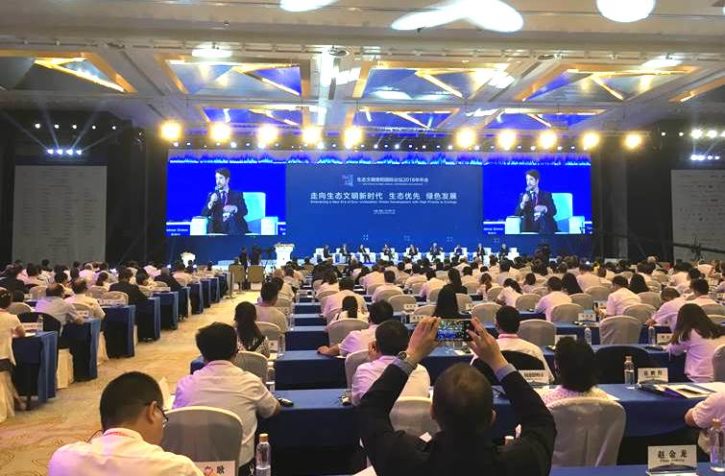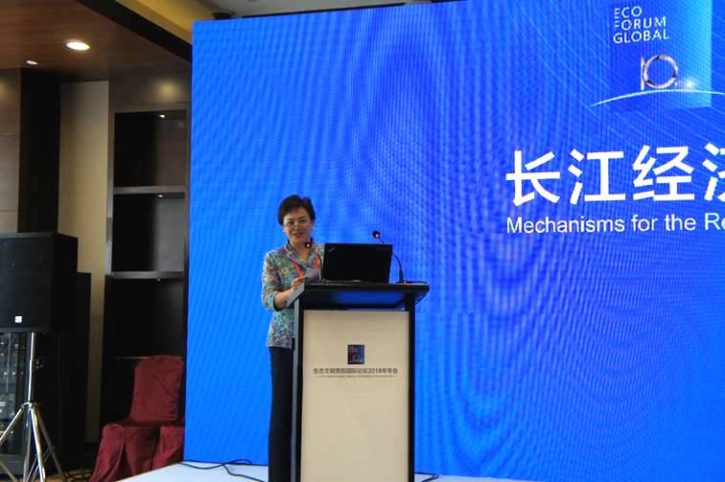
Advancing understanding of the valuation of local ecologies in regional development was the theme of a workshop the Paulson Institute hosted at the 2018 Eco Forum Global Guiyang, a premier environmental forum in China. In its tenth year, the Forum attracts senior Chinese government officials as well as global leaders from government, business, academia, media, and civil society to exchange views and share best practices on sustainable economic, industrial, and urban development.
The workshop, co-organized with the Guizhou Provincial Development and Reform Commission and The Nature Conservancy, explored mechanisms to value ecological products and services in the Yangtze River economic belt, which covers 11 provinces and municipalities along the Yangtze River and is home to about 40 percent of China’s population and GDP. The “products and services” from the region’s ecology include its ability to mitigate floods, sequester carbon, prevent sandstorms, enhance biodiversity, and provide clean air, water, food, and raw materials.
Through discussion of accounting methodologies and the sharing of international experience and best practices in designing and implementing mechanisms to realize the value of these products the workshop aimed to address some of the challenges associated with assessing the economic value of ecosystem services. Participants also discussed the importance of integrating the value of ecosystem services into government policies and socio-economic planning and the role that business plays to help promote the value of these services.
“We are always looking at ways to advance economic development that integrates the value of nature so it can be financed long-term,” said Dietmar Grimm, president of the Paulson Institute, speaking at the Forum. “It is more cost effective to protect these ecosystems in the first place.”

The workshop is part of a wider PI initiative to raise awareness of and introduce international best practices in the valuation of natural capital within policy making and finance circles. In partnership with the National Development and Reform Commission, the Chinese Academy of Sciences and Stanford University, the initiative includes pilot projects in Guizhou, Jiangxi, Zhejiang, and Qinghai. With the goals of promoting economic growth and preserving natural capital for the future, these pilot projects aim to identify and develop enabling policy frameworks and market conditions that will help local governments and communities to derive economic value sustainably from their natural resources.



